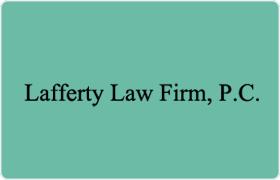Mount Pleasant Reorganization Lawyer, Tennessee
Sponsored Law Firm
-
 x
x

Click For More Info:
-
Lafferty Law Firm, P.C.
1321 Murfreesboro Pike Suite 521 Nashville, TN 37217» view mapBankruptcy & Debt Over 30 Years Of Experience
Susan S. Lafferty is a CPA and Attorney who enjoys helping people with financial problems. She is located in Nashville, TN where she has lived for over 30 years.
800-936-9071
Not enough matches for Mount Pleasant Reorganization lawyer.
Below are all Mount Pleasant Bankruptcy & Debt lawyers.
FREE CONSULTATION
CONTACTTravis Jones
Criminal, Dispute Resolution, Federal Appellate Practice, Bankruptcy
Status: In Good Standing
James Flexer
Bankruptcy & Debt, Accident & Injury, Criminal, Divorce & Family Law, Workers' Compensation
FREE CONSULTATION
CONTACTJoshua David Miller
Litigation, Credit & Debt, Family Law, Federal Appellate Practice
Status: In Good Standing Licensed: 13 Years
Kenneth Brian Hay
Wills & Probate, Trusts, Elder Law, Credit & Debt
Status: In Good Standing Licensed: 31 Years
James Harlan
Labor Law, Reorganization, Bankruptcy, Bankruptcy & Debt
Status: In Good Standing Licensed: 42 Years
James Robert Harlan
Consumer Bankruptcy, Commercial Bankruptcy, Bankruptcy Litigation, Bankruptcy & Debt
Status: In Good Standing Licensed: 42 Years
Bob Robert Grefseng
Juvenile Law, Bankruptcy, Banking & Finance, Business & Trade
Status: In Good Standing Licensed: 43 Years
Julie Carrell Heffington
Legislative Practice, Labor Law, Administrative Law, Reorganization
Status: In Good Standing Licensed: 11 Years
Keith Slocum
Child Custody, Reorganization, Bankruptcy, Bankruptcy & Debt
Status: In Good Standing Licensed: 22 Years
 Susan Lafferty Nashville, TN
Susan Lafferty Nashville, TN Practice AreasExpertise
Practice AreasExpertise
